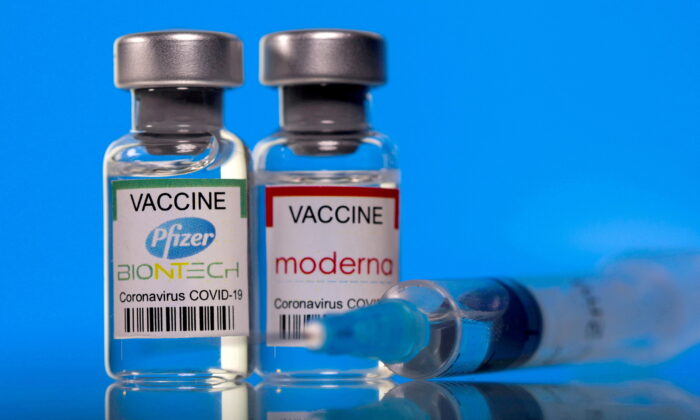
News analysis
Last week, Pfizer asked the Food and Drug Administration (FDA) to authorize its experimental antiviral pill for COVID-19. Merck’s COVID-19 antiviral pill has already been approved by Britain’s Medicines and Healthcare products Regularly Agency (MHRA), and the company has also applied for approval with the FDA.
With a pandemic that has already killed more than 5 million people across the globe, the race to find the most effective, easy-to-use treatments continue. But what do these rapid changes in drug development and new product offerings mean for share prices and revenues for COVID-19 vaccine makers?
COVID-19 vaccines have resulted in hundreds of billions of dollars in sales for the drug makers. It is projected that by the end of 2021, Pfizer/BioNTech COVID-19 vaccine sales will touch $36 billion. It has invested time and money in developing the vaccine, and it is believed that it will reap a profit of nearly 30 percent from this amount, way higher than the profits allowed for companies during previous crises such as the World War II.
COVID-19 vaccines are, therefore, a moneymaker for pharmaceutical companies. Mutations of the CCP (Chinese Communist Party) virus may be bad news for the world in terms of infections, hospitalizations, and deaths, but it is a welcome scenario for pharmaceutical companies because new variants mean the need for booster shots, which, in turn, mean more sales and more profits.
It is important to acknowledge here that Pfizer did not take any taxpayer money to develop its vaccine. It invested from its own pocket in its research and development. It did this? Simply because the economic value of the final product is tremendous for the company. Most governments worldwide are vaccinating their citizens for free, but the drug makers still get paid by these governments. For the drugmakers, it’s a big win.
According to figures from the Peoples Vaccine Alliance, both Pfizer/BioNTech and Moderna are making cumulative profits of over $65,000 every minute. But the fact is that vaccine distribution remains inequitable, with the richer countries still enjoying most of the benefits while poor countries continue to struggle to acquire them.
gap in vaccination rates between rich and poor countries is staggering. number of doses for rich countries is about 50 times more than that of poor countries. Countries with the lowest income have the lowest vaccination rates.
Pharmaceutical companies—especially Pfizer and Moderna—have seen a significant increase in their share prices due to their most recent vaccines. However, the risk of new vaccine entrants, the Merck and Pfizer COVID-19 oral pills, and the hopeful possibility that the pandemic will end soon are all factors that will and should affect share prices. Pfizer’s announcement of its new antivirus pill Paxloid already resulted in stocks of vaccine makers falling in Asia. Similarly, when Merck announced its COVID-19 pill, shares for Moderna and Novavax dropped immediately, and billions in market value were wiped off with a simple announcement.
COVID-19 pill could be a game-changer and could significantly reduce the demand for COVID-19 vaccines. Biden administration has already announced it will purchase 10 million courses of Pfizer’s COVID-19 pill. This is a $5 billion investment. Keeping these developments in mind, Moderna, Astra-Zeneca, and Johnson & Johnson share prices and revenue streams cannot be considered consistent in the long run.
In particular, Moderna does not have any other “breakthrough” products to keep this trend running, and if booster shots are not authorized or deemed necessary in the months to come, the company’s revenue and share prices could shrink. vaccine is the company’s first product, and while there is no doubt it has accomplished big things during the last eighteen months, with its market value climbing from $6 billion to $195 billion, the future may not be as rosy.
Meanwhile, the bigger players—Pfizer and Merck—should hold more stability when it comes to revenue generation and share prices compared to other vaccine makers in the long term. Pfizer in particular, with its COVID-19 pill soon to be authorized, does not seem to be slowing down its market domination in the COVID-19 treatment category.
Pezou : Race Between COVID-19 Pills and Vaccines